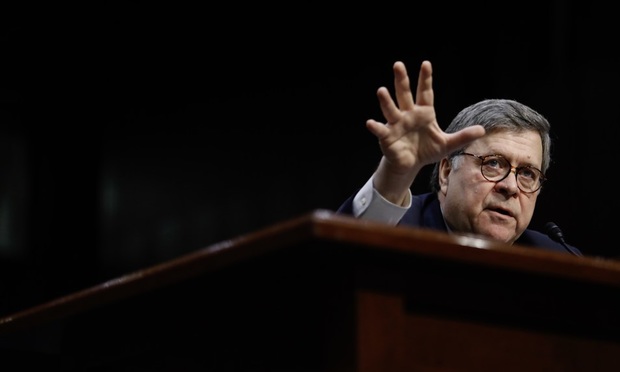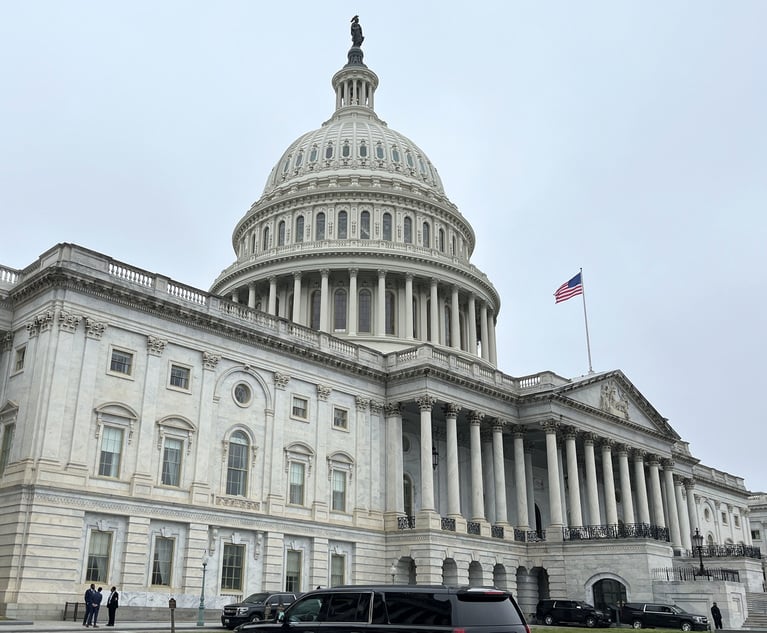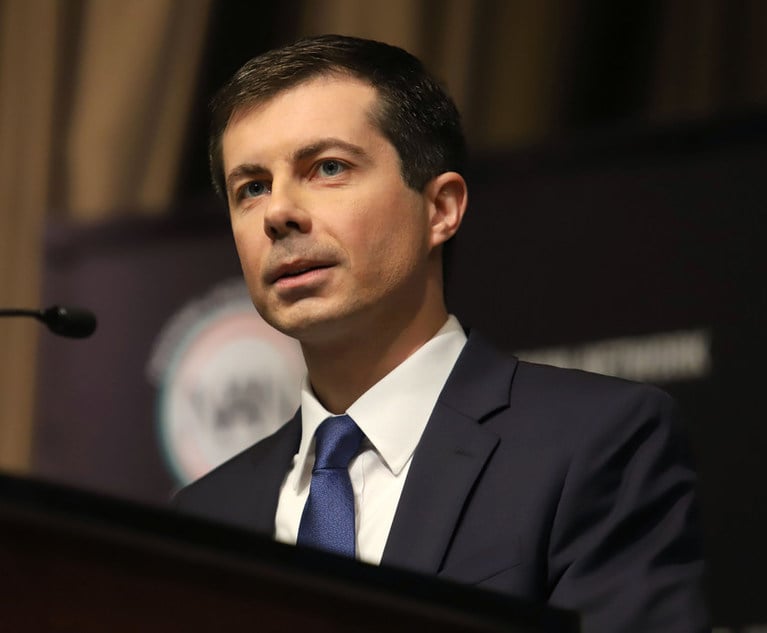The Justice Department’s finding that there is insufficient evidence to charge President Donald Trump with obstruction of justice drew skepticism from congressional lawmakers Sunday, with one key Democrat vowing to summon U.S. Attorney General William Barr to explain the determination.
Rep. Jerrold Nadler, the top Democrat on the House Judiciary Committee, said his panel would call on Barr to testify before lawmakers “in the near future.” He pointed to the “very concerning discrepancies” behind the Justice Department’s decision.

 William Barr appears for his confirmation hearing. (Photo: Diego M. Radzinschi / ALM)
William Barr appears for his confirmation hearing. (Photo: Diego M. Radzinschi / ALM)








